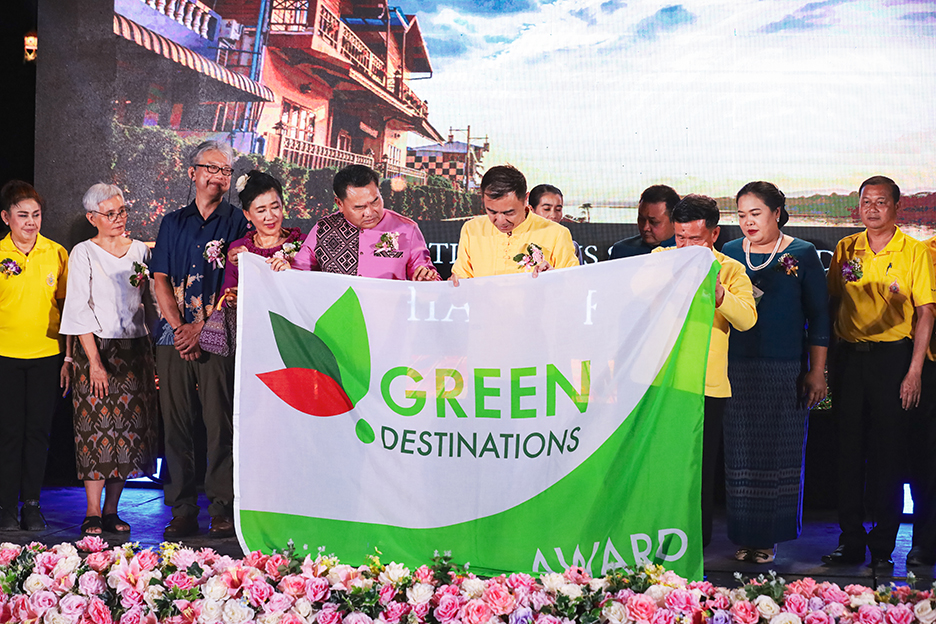Bhutan and Chiang Khan in Thailand have recently been honored with the Green Destinations ‘Silver’ certification awards, marking a significant achievement in sustainable tourism. This accolade highlights the commitment of these destinations to environmental conservation and sustainable tourism practices.

Bhutan: A Model for Sustainable Tourism
Bhutan’s Environmental Leadership
Bhutan, known as the first carbon-negative country in the world, continues to set an example in environmental conservation and sustainability. The Green Destinations Silver Award is a testament to Bhutan’s dedication to maintaining its pristine environment through strong leadership and sound conservation practices.
Sustainable Tourism Practices in Bhutan
Bhutan’s approach to tourism is guided by the philosophy of Gross National Happiness (GNH), which prioritizes the well-being of its citizens and the environment. This includes maintaining low-impact, high-value tourism that ensures minimal disruption to the natural and cultural heritage of the country. Tourists are required to pay a daily fee that includes sustainable development fees, ensuring that tourism revenue directly contributes to conservation efforts.
Chiang Khan: Preserving Culture and Nature
Unique Charm of Chiang Khan
Chiang Khan, located on the banks of the Mekong River in Thailand, is renowned for its hundred-year-old wooden houses with exquisite architecture. This charming town offers a glimpse into traditional Thai life and culture, making it a unique destination for travelers seeking an authentic experience.
Sustainable Practices in Chiang Khan
Chiang Khan’s recognition as a Green Destinations Silver Award recipient underscores its commitment to preserving its cultural heritage and natural environment. Efforts to promote sustainable tourism include initiatives to protect the Mekong River and the surrounding ecosystem, as well as projects to maintain the historical architecture of the town.
The Role of Green Destinations
About Green Destinations
Green Destinations, based in the Netherlands, is an accredited certification body by the Global Sustainable Tourism Council (GSTC). It provides the highest achievable and most affordable certification for sustainable tourism destinations. To date, 122 destinations worldwide have been certified by Green Destinations, demonstrating a growing global commitment to sustainable travel.
Growing Interest in Asia
According to Alber Salman, President of Green Destinations, there is increasing interest from Asian destinations in the certification program. Five destinations from the Asia-Pacific region have already been awarded Green Destination Certification, including locations in Japan, the Philippines, and Taiwan. Four more destinations in Thailand and Indonesia are in the pipeline to receive certification.
India’s Achievement: Mamallapuram
Mamallapuram’s Green Destinations Certification
Mamallapuram, a UNESCO World Heritage Site in India, has become the first ‘Green Destination’ in the country. It has completed its reporting and assessment, receiving an SDG destination score of 65%. This certification is part of a broader effort to celebrate and preserve Indian culture and heritage.
Support and Funding
The certification project for Mamallapuram is fully financed by MAMAT Trust under Amrita Vishwa Vidyapeetham. This support underscores the importance of public and private partnerships in promoting sustainable tourism and protecting cultural heritage sites.
Sri Lanka’s Sustainable Tourism Efforts
Sigiriya World Heritage Site
Sigiriya, a World Heritage Site in Sri Lanka, is also on its way to achieving Green Destinations certification. The certification process is being implemented by the Sri Lanka Tourism Authority with funding from the UNDP. The completion of this process is expected by next year, further cementing the region’s commitment to sustainable tourism practices.




